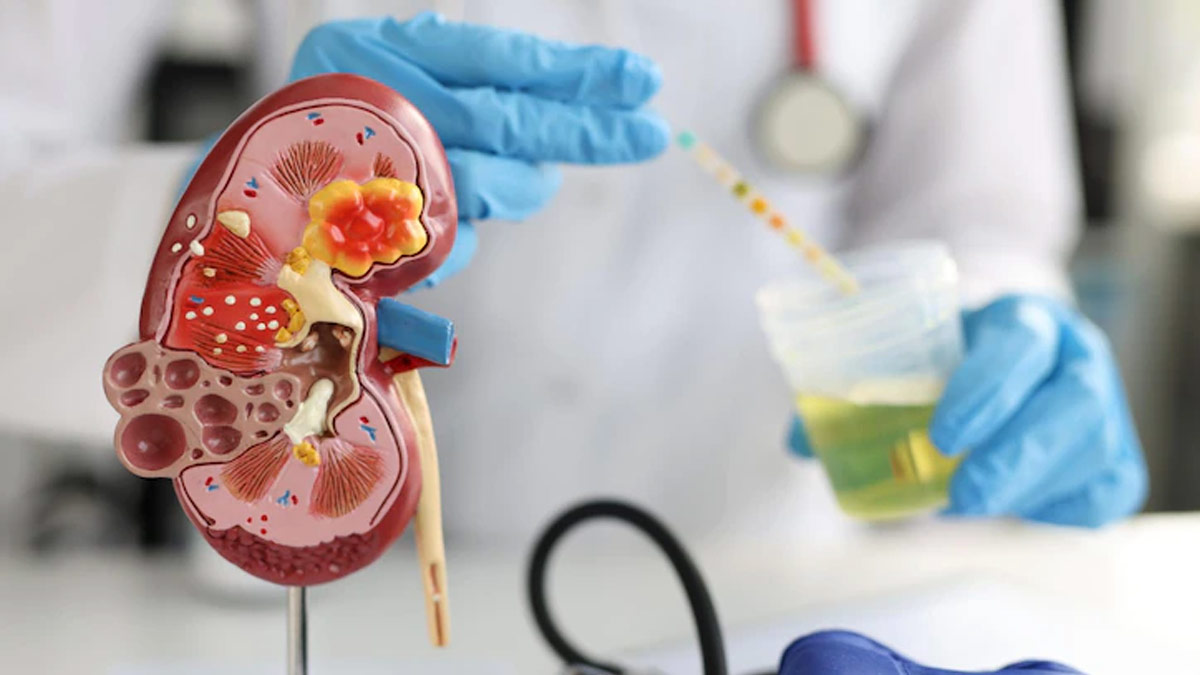Kidney Diseases: 7 Tests To Help You Diagnose A Problem In Your 30s
Discover the key tests to detect kidney diseases in your 30s early. Protect your kidney health with these essential screenings and interventions.
Detecting Kidney Diseases in Your 30s: 7 Essential Tests for Early Diagnosis
Introduction: Maintaining kidney health is crucial for overall well-being, especially as one enters their 30s. Kidney diseases often progress silently, causing significant damage before symptoms become noticeable. However, with timely detection and intervention, many kidney problems can be managed effectively. Here are seven essential tests recommended for individuals in their 30s to detect kidney issues early and pave the way for proactive management.
Urinalysis: Urinalysis is a fundamental test that examines the composition of your urine. It can reveal important information about kidney function by detecting abnormalities such as proteinuria (presence of protein in urine), hematuria (presence of blood in urine), and urinary tract infections. Additionally, urinalysis can provide insights into hydration levels and kidney health markers such as specific gravity and pH.
Blood Pressure Measurement: High blood pressure, also known as hypertension, is a significant risk factor for kidney disease. Regular blood pressure monitoring is crucial, as hypertension can damage the blood vessels in the kidneys over time, leading to impaired kidney function. Individuals in their 30s should aim to maintain a blood pressure reading within the normal range (120/80 mmHg) and consult a healthcare professional if their readings consistently exceed this threshold.
Serum Creatinine Test: Serum creatinine is a waste product produced by muscles that is filtered out of the blood by the kidneys. A serum creatinine test measures the level of creatinine in the blood, providing an estimate of kidney function. Elevated creatinine levels may indicate impaired kidney function or kidney damage. This test is essential for assessing overall kidney health and detecting potential problems at an early stage.
Read more: Everything you need to know about World Glaucoma Day 2024- Date, history and significance
Glomerular Filtration Rate (GFR) Calculation: The glomerular filtration rate (GFR) is a measurement that indicates how well the kidneys are filtering waste from the blood. A GFR calculation takes into account factors such as age, gender, race, and serum creatinine levels to estimate kidney function. A decrease in GFR may suggest reduced kidney function and could indicate the presence of kidney disease. Regular monitoring of GFR can help track changes in kidney function over time
Kidney Imaging Studies: Imaging studies such as ultrasound, CT scan, or MRI may be recommended to evaluate the structure and size of the kidneys. These tests can detect abnormalities such as kidney stones, cysts, tumours, or structural defects that may affect kidney function. Imaging studies are particularly useful for identifying underlying causes of kidney disease and guiding treatment decisions.

Albuminuria Screening: Albuminuria refers to the presence of albumin, a protein, in the urine. It is an early sign of kidney damage and can precede the development of chronic kidney disease. Screening for albuminuria involves testing urine samples for elevated levels of albumin. Individuals with diabetes, hypertension, or a family history of kidney disease should undergo regular albuminuria screening to detect kidney problems early and prevent further damage.
Read more: How To Beat Stress and Anxiety within the Workplace?
Kidney Biopsy: In certain cases where the underlying cause of kidney disease is unclear or if more detailed information is needed, a kidney biopsy may be performed. During a kidney biopsy, a small sample of kidney tissue is removed and examined under a microscope. This procedure can help diagnose specific kidney conditions, assess the extent of kidney damage, and guide treatment decisions. While kidney biopsy is not a routine test, it may be recommended by a nephrologist or kidney specialist based on individual circumstances.
Conclusion: Detecting kidney diseases early is vital for preserving kidney function and preventing complications. By undergoing regular screenings and tests in your 30s, you can identify potential kidney problems at an early stage and take proactive steps to maintain kidney health. Consult with a healthcare professional to determine the appropriate screening schedule based on your medical history, risk factors, and overall health status. Remember, early detection and intervention are key to protecting your kidneys and ensuring long-term wellness.
Like this post?
Register at One World News to never miss out on videos, celeb interviews, and best reads.








